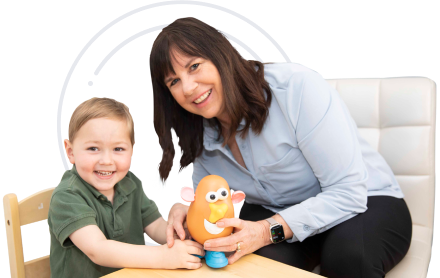Language Delays: How Are They Different from Autism?
Dr. Mary Barbera
Language Development Milestones
I didn’t realize I was counting those as the actual words Lucas was saying, even though it was actually delayed echolalia, which means he’s heard something before and now he’s repeating it or scripting it in his head. So, these aren’t real words. Sounds, fill in the blanks to songs, and definitely delayed echolalia aren’t ways we use words functionally.
Language Delays and Autism
Want to Learn how to Increase Talking & Decrease Tantrums in Children with Autism or Toddlers Showing Signs?
Want to start making a difference for your child or clients?

How to Tell If Your Child Has a Language Delay
You should also be aware of what typically developing milestones look like. Go to the CDC website to find out some of the milestones your child should be reaching both in terms of language as well as other areas. They could be physically delayed; they could be socially delayed, and they could be delayed with self-care tasks such as eating with utensils or still drinking from bottles/using pacifiers way too late. The other thing you could do as part of the assessment is to download a free MCHAT and watch my video blog I did on the MCHAT.
How to Help a Child with Language Delay
Get Help Today
For more information about delayed language and autism, take a two-minute quiz at marybarbera.com/quiz. Then, watch a free workshop to get started on the right path today towards turning autism around.
Want to Learn how to Increase Talking & Decrease Tantrums in Children with Autism or Toddlers Showing Signs?
Want to start making a difference for your child or clients?
